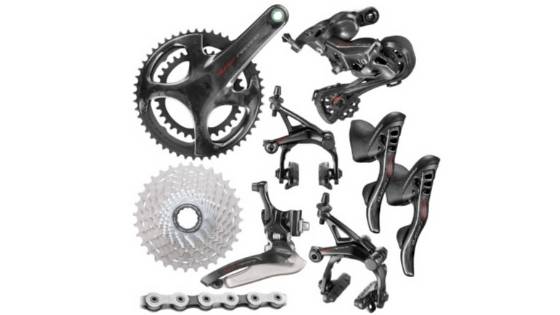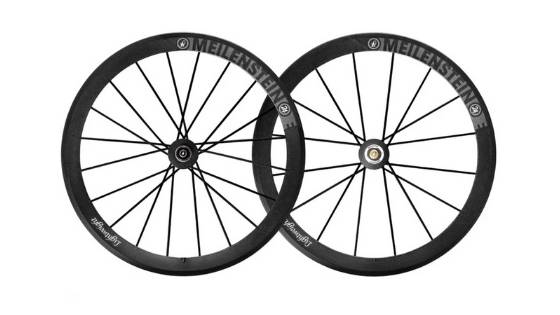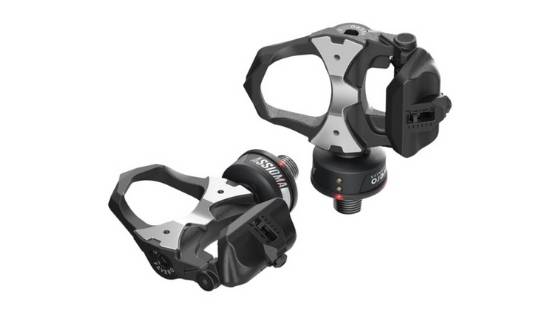The prices of road bikes today are outrageously expensive. One might even say that road biking is a rich person’s sport because the bikes look far more complex than mountain bikes and certainly cost a lot more.
However, this is not necessarily true. Many people enjoy road biking because there are many more benefits than traditional mountain biking, which requires a lot more physical exertion to travel.
Nonetheless, I still have to wonder why road bikes are so expensive?
Generally, road bikes are expensive because they use high-grade carbon fibre for their frames and wheels. Road bike groupsets are manufactured using the most lightweight and durable materials, making them significantly more expensive than other types of bikes.
A road bike is typically lighter (the frame), stiffer (the frame), and has more gears than a touring bike. It evidently means it costs more because it requires more parts to function correctly, and it has to be lightweight and robust so that the rider can travel as quickly as possible.
This does seem like a reasonable explanation for why road bikes are so expensive. After all, more parts suggest more labour costs and those labour costs require a price increase.
However, I believe the main reason is that a racing bike is a status symbol. We watch top elite cyclists on the Tour De France riding road bikes at an average cost of $13,000 plus. People want the same success as those riders, so they buy a fast bike with expensive parts.
Table of Contents
What Parts Make A Road Bike Expensive
Frame Material:
The most expensive road bike frames are made from carbon fibre, which is lighter and more flexible than other materials. Therefore, the more expensive road bikes will be made from carbon fibre, which could be more than double the price of different metals.
A steel bike frame is less expensive but heavier. Titanium is stronger than steel but about the same weight as aluminium, making it the second choice for road bikes.

Road Bike Components:
The brakes, derailleurs and levers are essential parts of a road bike. More expensive models have better quality components that are lighter, smoother and more durable.
For example, the most used groupset on road bikes is the Shimano 105 or Shimano Tiagra, typically costs $600 (£450). However, the Shimano Ultegra Groupset costs around $1350 (£1000). But that’s not even close to the price of the Campagnolo Super Record Groupset, which will cost you more than $3,100 (£2200).

Road Bike Wheels:
A set of road bike wheels can cost anywhere from $350 (£250) up to a staggering $8,000 (£6000) and beyond. Making these types of wheels more expensive than the bike frame.

Accessories:
Higher priced road bikes come with accessories like water bottle cages, clipless pedals with wattage meters and even electric gears and braking systems, adding up to thousands.

Why Are Road Bikes More Expensive Than Mountain Bikes?
On average, a road bike is generally double the price of a mountain bike. The reason, road bikes typically use lighter weight carbon fibre materials and expensive groupsets, whereas mountain bikes use strong materials that cost far less.
As mountain bikes are used on rough terrain, where stuff breaks easily and often, you would expect manufacturers to offer great warranties on their mountain bike parts. This will have an influence on the part prices and labour cost.
If a manufacturer is willing to replace your broken parts for free, they can sell those parts for less money, making mountain bike components far more affordable than road bike parts.
Generally, road bikes aren’t cycled on the same terrain as mountain bikes. Meaning, road bikes use bike parts that are intended to last a reasonable amount of time. These bike parts need to be lighter while still tough enough to handle the forces created by the rider when cycling at speed.
If you have a look at the markup for one of your favourite road bike brands, you will see that they sell their bikes for about double what it costs them to produce those bikes. But as the demand for faster and lighter road bikes is growing, the prices of these bikes increase every year.
Does an expensive road bike make a difference?
On average, a more expensive road bike will make a significant difference to the speed, aerodynamics and overall riding feel than a less expensive road bike. However, a top of the range super road bike will cost $5,000 plus, making it 50 -70% more expensive than a midrange or cheaper bike.
It is easy to assume that an expensive bike will ride better and faster than a cheaper one. This theory makes buying decisions simple – spend as much money as possible, and you will end up with the best bike. Nevertheless, the amount of money you can spend on a road bike is endless, but it might not significantly affect your overall performance.
Few cyclists have done any research into how their bikes are performing. Therefore, opinions on this subject are likely to be based on what people assume. I am not aware of any surveys or studies that have been carried out into this particular question.
However, there is a wealth of information on the Internet from cyclists who own both expensive and cheaper road bikes. A common opinion among riders is “you get what you pay for” – more expensive road bikes are lighter, faster and handle better.
This idea is supported by the fact that many professional cyclists ride expensive, lightweight carbon fibre bikes. Carbon fibre has been shown to be superior in several ways (in terms of durability and robustness) to aluminium frames.
How Much Faster Is An Expensive Road Bike?
On average, an expensive road bike will be 20% faster on flats, 10-15% fast uphill and 15% faster downhill. Suggesting that an expensive road bike will be 20% faster overall than a cheaper road bike.
However, research is being carried out into how much power is used when cycling at different speeds. It appears that the greater your speed, the more energy you put into moving forward, no matter what type of bike you are using. As speed increases, it becomes more difficult for a cyclist to pedal at the optimum speed for efficiency.
As well as this, your bike gains momentum at higher speeds, making it harder to slow down for curves or traffic lights. This means that generally, cyclists will use more energy riding faster (on whatever bike they are using).
One of the essential factors in purchasing a road bike is usually how fast it is. What if I told you that your expensive bike isn’t actually any quicker than an inexpensive one?
How can this be? There are two ways, one mechanical and the other psychological. Sometimes cyclists are over-concerned with areas that don’t actually affect their speed.
Mechanical Argument:
Your bike’s frame is what determines one bike’s speed from another bike. A steel frame has more inertia than a carbon-fibre frame, which makes it slower. However, your bike’s components (the seat, handlebars, and wheels) can weigh up to 20 pounds. This additional weight also contributes to extra inertia and decreases speed.
Psychological Argument:
The psychological argument makes you think that your expensive bike must be faster than an inexpensive one because you spent more money on it. But the only difference between them is a few pounds of weight, which isn’t enough to boost your speed significantly.
To prove this point, you could set up a course and time yourself with each kind of bike. The results will be that your expensive bike is only 10% slower than your more cheap bike. Therefore, its how hard to push yourself that actually makes the biggest difference.
Conclusion
Buying a road bike is an investment. When it comes to the bikes, you get what you pay for. The more expensive ones are built with higher quality materials and have lower weight, which will help improve your overall performance.
You could buy a cheaper model that might not be as fast or durable in comparison; however, if you want something that can handle any terrain while still getting good speeds on all types of surfaces, then investing in an expensive road bike may make sense for your needs.
